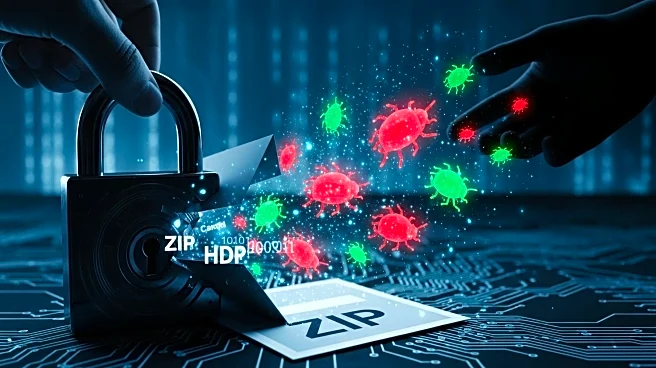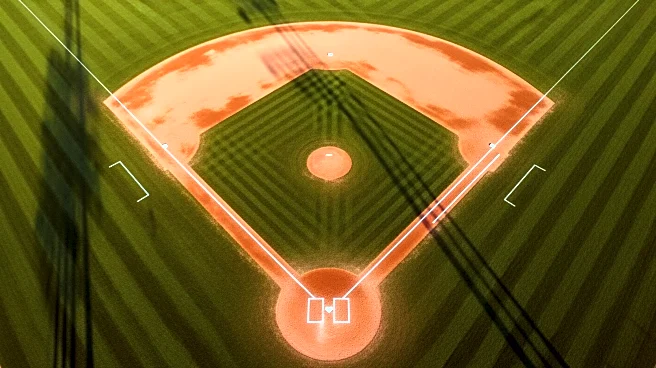What's Happening?
A new phishing campaign has been identified, utilizing malicious ZIP files that contain Windows shortcut files to deploy DLL implants. According to Infosecurity Magazine, these ZIP files are disguised as legitimate documents such as payment records and passport scans. The attackers use social engineering tactics to spread these files, which covertly launch an obfuscated PowerShell dropper. This dropper retrieves DLLs disguised as .ppt files, executing commands without user permission. The campaign exploits user trust in document-themed content, prompting organizations to implement stricter security measures against LNK files and enhance script block logging.
Why It's Important?
This phishing campaign highlights the evolving tactics of cybercriminals, who are increasingly using sophisticated methods to bypass security measures. The use of Windows shortcut files in ZIP archives poses a significant threat to organizations, as it can lead to unauthorized access and data breaches. The campaign underscores the importance of robust cybersecurity practices, including the prohibition of certain file types and the implementation of advanced logging and monitoring systems. Organizations must remain vigilant and adapt their security strategies to counter these emerging threats effectively.









